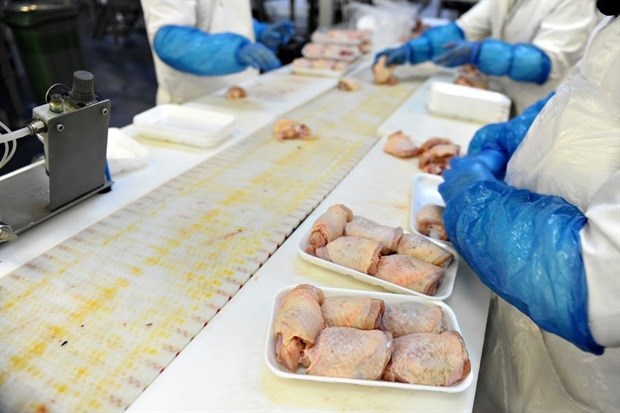
The application to the International Trade Administration Commission (ITAC) calls for an increase to the ad valorem tariff on both bone-in and boneless frozen chicken portions to 82% from existing levels of 37% and 12% respectively.
The higher tariff would stem the flood of imports from countries such as Brazil, which Fair Play says "has ramped up its assault on the South African market" while EU imports have been largely blocked by bird flu bans this past year. Brazil is unaffected by the three-year safeguard duty that was imposed on EU chicken imports recently.
“We have watched in dismay as a highly competitive local industry has been reduced to an existential crisis by years of steadily increasing imports of chicken portions dumped below the cost of production,” said FairPlay founder Francois Baird. “Higher tariffs will help protect the industry and the thousands of jobs which are at risk because of these opportunistic imports that have been steadily rising to the point where imports now claim between and quarter and a third of the South African market.”
As a result, he says, smaller producers have gone out of business, larger ones have contracted, shed jobs and been forced to change their business models. “The rising local demand for chicken is being met by imports and chicken industry jobs are going to other countries instead of creating opportunities for South Africa’s own people in what has been proved to be a highly efficient industry.”
Baird added that the tariff is necessary because chicken is a strategic industry to protect food security in SA. “South African chicken producers are vital for the survival of the soya and grain industries. Imagine the devastation of food security and access for all when the entire chicken value chain is destroyed by artificially cheap imports,” he said.
The Food and Allied Workers Union (FAWU) shares FairPlay’s concerns. Says General Secretary Katishi Masemola, “South African chicken producers should be expanding and creating jobs, not the opposite. This is the biggest sector of the agricultural industry and tens of thousands of workers depend on chicken production for their livelihood, particularly in rural areas where unemployment is an epidemic. We appeal to Government to grant this new tariff to slow down the imports that threaten the survival of so many. Let South Africans produce the food that our people eat!”
Government has asked for comment on the application, and Baird confirmed that FairPlay will be supporting SAPA’s application to stem the import tide and save local jobs. “The Government Gazette (p88) that contains the application lists persuasive arguments for the tariff application. We hope that other organisations will join us in this important next step.”
Proudly SA is one such organisation that is supporting the application. Says CEO Eustace Mashimbaye, “It is important to consider mechanisms to assist the recovery of the local poultry sector and bring it back to its former levels of productivity and profitability. If the imposition of higher import tariffs leads to the restoration of jobs we have lost and even the creation of new ones, SAPA’s move has our full support.”
A government lifeline to the chicken industry is an economic necessity with wider implications than just chicken, according to economist Mike Schussler. “We cannot allow industries that are efficient and employ thousands of people to fall over. We need trade and we want trade but we need a level playing field. If our poultry industry goes, the chances are that our maize and fast-growing soya industry will suffer too.”
Schussler makes the point that South Africa is one of the few food-exporting countries that has very little in the way of subsidies and protection for its farmers and food industry.
“It doesn’t have low interest rates for its food processors or minimum price support. It offers no electricity or fuel subsidies for producers of chickens or crops. It doesn’t subsidise the crops that the chicken eat. In fact, food producers in most countries have strong lobbies that have their government’s ear. Here in SA, the government offers almost no support to its farmers and often also puts them under lots of strain,” he says.
“Yet our food producers are working miracles and we need to understand that. We also need to understand that if the biggest sub-sector in farming dies due to unfair advantages of other countries that might be the final nail in the coffin of the rural economy. The job losses will not just be in the poultry industry; it will be in maize and soya, in processing, in transport… and it’s rural towns that will be impacted.”
South Africa needs to recognise the long-term threat, says Schussler. “If this industry fails it will increase imports and decrease the value of exports. We’ll see another increase in the current account deficit with the rest of the world. This will weaken the rand over time and the imported chickens will just cost more for consumers anyway.”